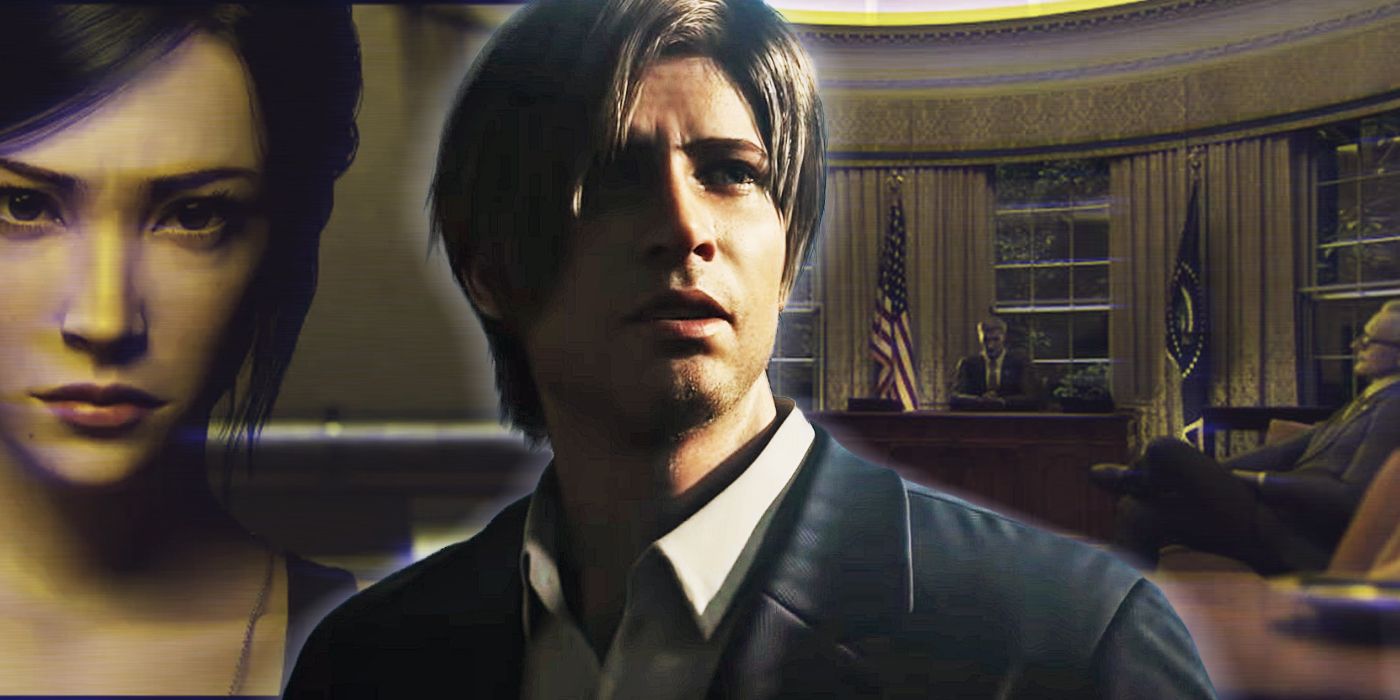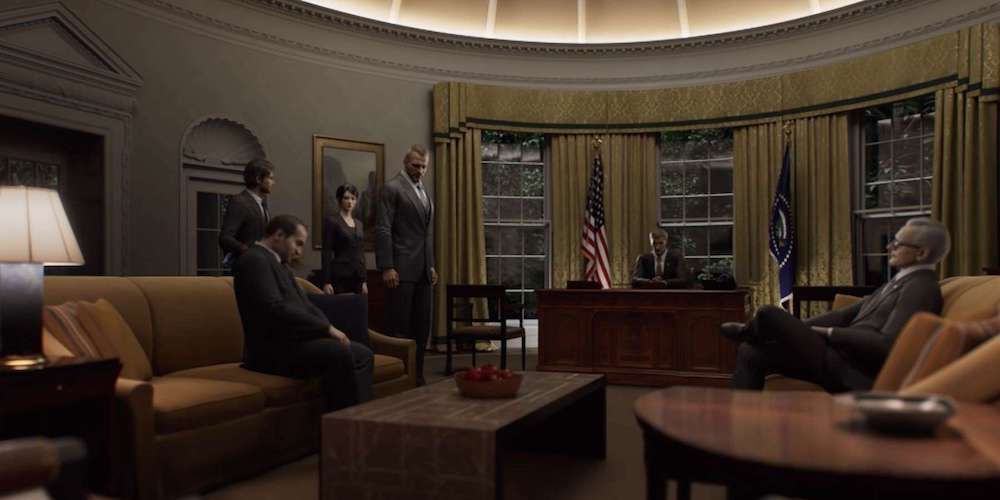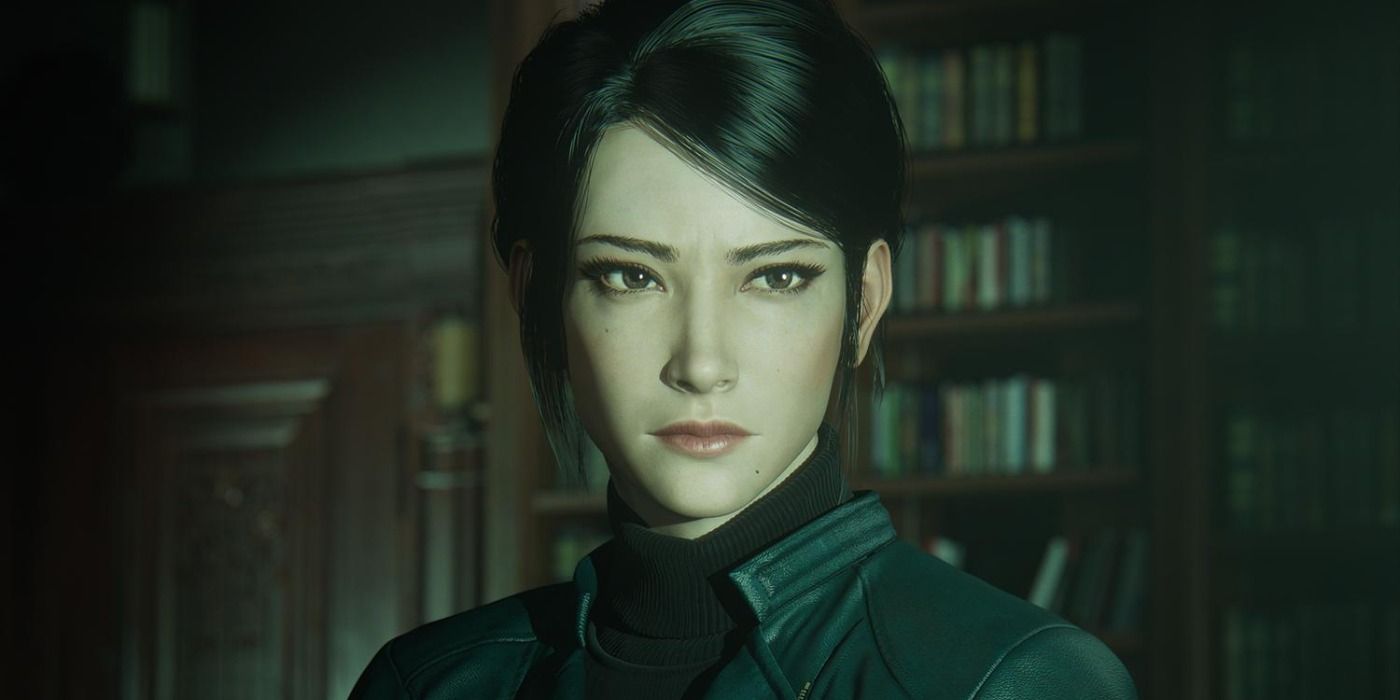
WARNING: The following contains major spoilers for Resident Evil: Infinite Darkness, now streaming on Netflix.
The Resident Evil franchise has had its problems in the past, with Resident Evil 5 being called out for its racist undertones in depicting African villagers. From the way Africans were just cannon fodder, to them assaulting white women, critics felt it was insensitive to a people once deemed subhuman by bigots. To make it worse, the introduction of Sheva Alomar as a heroic soldier didn't feel genuine, as she simply looked like a darkened Lara Croft whose accent wasn't even genuine to her West African background.
The developers then altered backgrounds and scenes to make it seem like fewer people of color were being shot, further stoking the fire so much that Capcom knew they made an error. However, while the series has tried to fix that in the years since, Resident Evil: Infinite Darkness walks the progress back with its own diversity problem.

The first mistake comes with the occupation of Penamstan by the U.S. Army, showing the civil war that's taking place as America invades and tries to install a regime to take control and place pressure on the Chinese border. It comes off xenophobic and paints the people, even women and children, as savages, which ties into real-world views on how the Middle East is portrayed.
Resident Evil: Infinite Darkness has tones of Iraq to it with Defense Secretary Wilson wanting to use the people as guinea pigs for his biowarfare experiments, which feels tone-deaf in the modern era. Details like this push the idea of Islamophobia, which occurs not just in the Americas but in Europe as well. The pillaging, the abuse of Penamstan's people, and the way America treats it like a political tool feels like Resident Evil 5, as the gore and violence really don't need to be the exclamation mark on people's suffering.
Sure, it fits America being the colonizer, but with the way Claire Redfield comes in with her humanitarian group, it's also the white savior trope all over again. This could have been reduced to a domestic arc a la Raccoon City, which would hold more emotional and personal value to her. But the way Penamstan is used, it's basically America's way of saying they can save a land of infidels. More so, Wilson's rhetoric about China hacking them, stealing secrets and unleashing chemical warfare is definitely not the message you want out there given the conspiracies abound regarding China and Wuhan during the pandemic, which has led to increased violence toward Asian people.

To make it worse, that ignorance is doubled-down on with Shen May, an American-Chinese intel officer whose brother Jun-See has been turned into a monster by Wilson infecting the military zone in Penamstan. She does most of the heavy lifting with Jason and Leon in Infinite Darkness and goes on to try to expose America's dirty secrets. Yet she's killed by Jason himself in the end. It makes no sense as they're best friends and have the same objectives to bring down Wilson. While he wants violence, she wants to use the media, but this isn't a reason for a mutated Jason to snap her neck in a graphic scene.
A predominantly white franchise doing this to an altruistic Asian lead who has so much vested in the story is unfair. It's done for shock value but considering the likes of Claire and even Jill Valentine will always be propped up, returned from the dead and treated like celebrities, Shen May's murder really feels like diversity wasn't taken into account. In a series where China's being framed as an enemy and in which her family is also killed to cover up evidence, a strong Asian woman really could have been a trump card for Resident Evil's future against Tricell and Wilson.
0 Comments